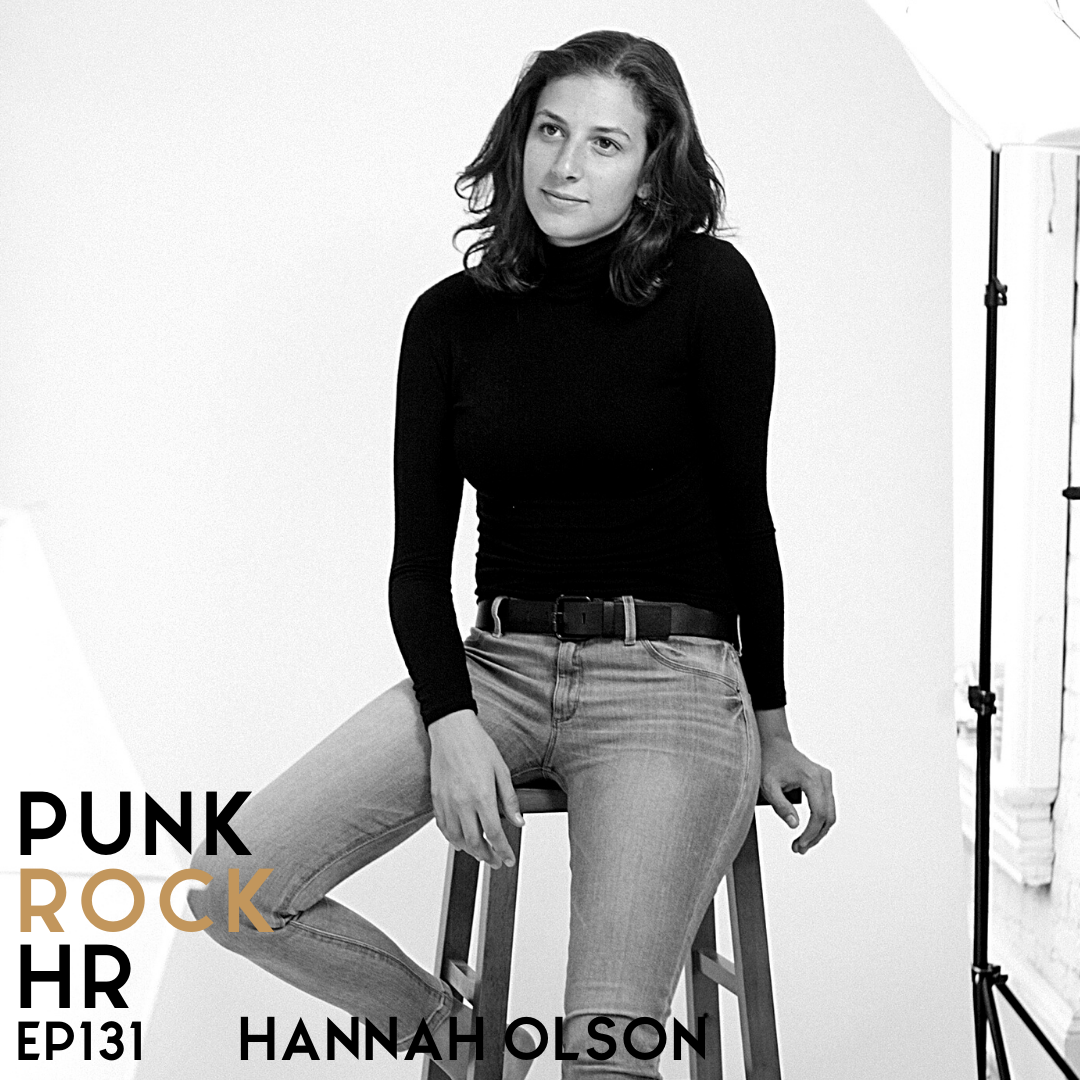
Punk Rock HR Episode 131:
My guest this week is Hannah Olson. She is the co-founder and CEO of an organization called Chronically Capable. Hannah had her dream job right out of college but later contracted Lyme Disease. Her treatments for her chronic illness got in the way of her job. Frustrated, she thought there had to be a better way.
So, she created that better way: Chronically Capable. It’s a technology platform, an ATS, and really a community that tries to match individuals with disabilities and chronic illnesses with employers who are thoughtful, progressive, and aim to support that community. It’s National Disability Employment Awareness month in America, a time when we recognize disabled and chronically ill workers and acknowledge their contributions to the economy. So, this is the perfect time to bring Hannah onto the show.
Today, Hannah and I talk about her journey, her chronic condition, and what she’s doing to solve a problem that affects millions of people around the world. If you’re interested in what a 24-year-old entrepreneur is doing to change the nature of global corporations, sit tight and enjoy this conversation with Hannah.
In this episode you’ll hear:
- Some of the companies Hannah is working with.
- Common language around the community she serves.
- What employers have to say about hiring the disabled and chronically ill population.
- Why hiring that population is good for businesses.
- What companies can do to reach out to that population and let them know they’re hiring.
- The origin story of Chronically Capable, what it does, and who it serves.
- What her entrepreneurial community looks like.
- How she makes sure someone’s condition and the job they’re placed in will be a good fit.
- How to keep members of the disabled and chronically ill community once you’ve hired them.
KEY TAKEAWAYS
WHAT IS THE COMMON LANGUAGE HANNAH USES AROUND THE COMMUNITY SHE SERVES?
Unlike most disabilities, there isn’t really a standard accommodation list for chronic illnesses. It’s even harder because those who suffer from these conditions have needs that fluctuate on a daily basis. Chronic illness affects 157 million Americans alone and 123 million of those Americans are of working age. Chronically Capable sees a large range of conditions, the top ones having to do with mental health, Lyme disease, and autoimmune-related disorders. The people in the Chronically Capable community tend to be more on the illness or invisible disability side of things.
WHAT DO EMPLOYERS HAVE TO SAY ABOUT HIRING THE DISABLED AND CHRONICALLY ILL POPULATION?
The first few calls Hannah makes with employers are all about educating them about her audience. When these employers first hear about these kinds of people they have concerns about the high costs of accommodations and that those people are going to need to work remotely. In reality, however, these costs are pretty minimal and they are actually fruitful investments. It’s also a big misconception that everyone who’s struggling with a chronic illness needs to work remotely. Many prefer being in an office and being around people. In reality, the most common accommodation requests Hannah sees from her community is the need for flexibility. It’s important for a disabled or chronically ill employee to have an employer who will let them leave for doctor’s appointments or skip out during the lunch break for a blood draw. These folks aren’t looking for major accommodations that are going to drastically impact the workplace.
WHY IS HIRING THAT POPULATION GOOD FOR BUSINESSES?
Disability inclusion should be seen as an opportunity and not a chore. If you hire people with disabilities and illnesses, that’s good for people and that’s good for companies. Companies that are fostering stronger disability inclusion programs have better access to talent, they’re able to find the right person for the right job, and they have better employee retention. Most importantly, they have the tools in place to help all of their employees thrive. Unfortunately, it’s taken COVID-19 to show us the benefits of having a non-traditional workplace environment. The current trends are presenting new opportunities for companies.
WHAT CAN COMPANIES DO TO REACH OUT TO THAT POPULATION AND LET THEM KNOW THEY’RE HIRING?
The themes of this month are about increasing access and opportunity. Those two words are really important because it’s one thing to say that you’re a company that is inclusive and wants to hire people who are differently-abled. It’s another thing to actually put that recruiting spend into hiring. So, the way to find this population is in communities like Chronically Capable. Seeking out different diverse recruiting sources that are catered to chronic illness and disability is a great place to start.
HOW CAN I KEEP MEMBERS OF THE DISABLED AND CHRONICALLY ILL COMMUNITY ONCE I’VE HIRED THEM?
By signing up for organizations like Chronically Capable, you’re one step closer to being more transparent. However, this needs to continue when you’re in the office. So, managers need to be open to their employees and talking to them about their needs. Businesses should also form employee resource groups. This all needs to start from the top down of organizations. Start with the hiring managers, then the managers, and then speak with all the employees. Inclusion is about figuring out how to get the entire work culture to change and spending the time to educate your employees.
Resources from this episode:
Library of Congress article on Disability Employment Awareness Month